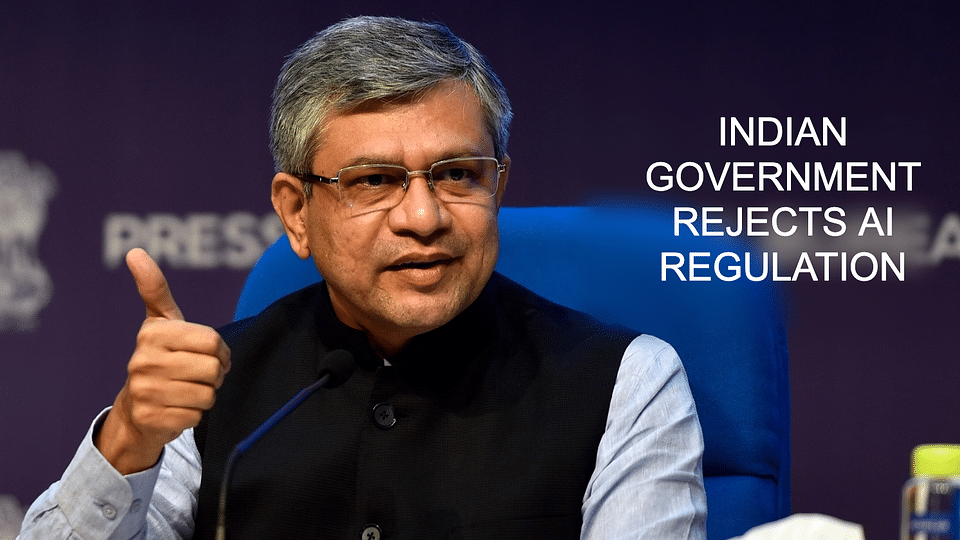Indian Government Rejects AI Regulation Amid Ethical Concerns
Indian IT Minister Ashwini Vaishnaw says government will not regulate AI, but acknowledges ethical concerns and risks.
The Indian government has chosen to prioritize AI development over introducing regulations for artificial intelligence (AI), according to IT Minister Ashwini Vaishnaw. The Minister acknowledged the ethical concerns and risks posed by AI, such as bias, discrimination, privacy violations, and lack of transparency, but informed the Parliament that no law or regulation is being considered for AI growth in the country.
Vaishnaw emphasised that the government has already started working on standardising responsible AI development and promoting best practices. The National Strategy for AI report, released in June 2018, highlighted these ethical concerns. Additionally, NITI Aayog has published a series of papers on "Responsible AI for All." Nevertheless, the Indian government remains firm in its decision not to introduce AI-specific legislation or regulations.
Meanwhile, in a separate response, Minister of State for Electronics and IT Rajeev Chandrasekhar revealed the government's plan to harness AI's potential to offer personalized and interactive citizen-centric services via digital public platforms. Chandrasekhar also addressed questions about 's ChatGPT, acknowledging its progress and the challenges posed by large language models.
Although no guiding principles have been established for state or union ministries regarding AI development or deployment, these entities have been urged to have a clear understanding of AI's objectives and scope. Prominent tech industry figures, including chief Sridhar Vembu and others, have expressed concerns and called for AI regulations.
Vaishnaw further disclosed that the Ministry of Electronics and IT (Meity) is collaborating with CDAC on a proof-of-concept project, AIRAWAT (AI Research, Analytics, and Knowledge Dissemination Platform). This project aims to provide a common computing platform for AI research and knowledge assimilation. The AI computing infrastructure will be used across technology innovation hubs, research labs, scientific communities, industry, and startup institutions connected to the National Knowledge Network.
The National Informatics Centre (NIC) has also set up a Centre of Excellence in AI, which will offer AI as a service through the Meghraj cloud with 7 AI petaflops super compute facilities in Delhi and a 5 AI petaflop facility in Kolkata.
The Indian government has chosen to prioritise ethical AI development and harness its potential without imposing strict regulations. By encouraging responsible AI practices and promoting a clear understanding of AI objectives and scope, India aims to foster innovation while addressing ethical concerns. With ongoing efforts from various institutions to provide resources and infrastructure for AI research and development, the nation seeks to strike a balance between AI growth and responsible, ethical use, ultimately benefiting its citizens and economy.











